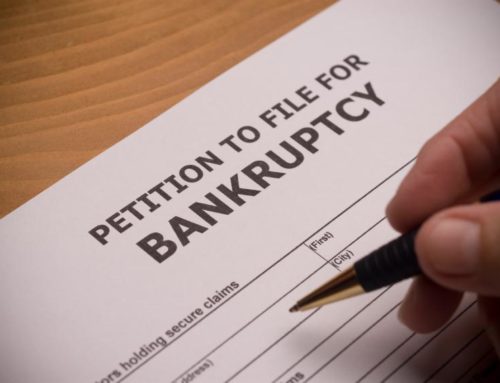For debtors who find themselves grappling to pay for outstanding loans, filing for bankruptcy (Chapter 7) is a good recourse. But before you submit your bankruptcy application and have debts discharged, you need to meet certain qualifications prescribed under the bankruptcy law. Who is qualified to file for bankruptcy? This post talks about the means test, which differentiates eligible from ineligible filers of Chapter 7 bankruptcy.
If you have already passed this test, you can schedule an appointment with a bankruptcy lawyer to discuss which documents are needed for your bankruptcy petition.
In a nutshell, the bankruptcy means test examines how a borrower’s income fares with his or her expenses (which includes debts) prior to filing bankruptcy. It was named as such because it analyzes whether you have the “means” to continue providing monthly payments toward some or all of your unsecured debt and secured debts. You become eligible for a Chapter 7 bankruptcy application once the test reveals that you are indeed incapable of paying what you owe given your current source of income.
This bankruptcy test has been established by Congress to prevent individuals or corporate borrowers from abusing the system just to escape their financial obligations. It ensures that forgiveness of debt is only granted to those who truly have no way to repay.
What to Expect When Taking the Means Test
 Any debtor who plans to take the means calculation must fill up certain bankruptcy forms including a statement of their income and supporting documentation. They should also consider the factors below.
Any debtor who plans to take the means calculation must fill up certain bankruptcy forms including a statement of their income and supporting documentation. They should also consider the factors below.
- Monthly income. Income will be compared in relation to the state’s median income. Under the bankruptcy code, you are only deemed eligible for Chapter 7 if your monthly income is below the median income set for your household size. Since median incomes vary between states, it is best to check the official statistics in your area of residence.
- Disposable Income. What happens if you fail the means test based on income? In this case, you may still show eligibility for bankruptcy if you can prove that your disposable income is still less than the state median income. The amount of income disposable for a household is calculated by subtracting your living expenses from your income. You may wish to get legal advice from a bankruptcy attorney to assist you in such calculations.
- Living Expenses. A legal representative will help you arrive at an estimated computation based on the following monthly expense sources:
- necessities (food, clothing, shelter, medicine),
- out-of-pocket expenses for health maintenance,
- disability and other insurance,
- bank and other savings account,
- child care or elderly care costs, mortgages,
- car loans and public transportation expense,
- student loans,
- and costs for training
Note that during your means evaluation, a separate calculation is made for the costs of elderly care (above 65 years of age).
Who are Exempted from Taking the Means Test?
The following individuals may be exempted from means-testing:
- Veterans with disabilities – debts should have been incurred during deployment
- National Guard members – those who were on duty after 9/11
Bankruptcy attorneys from Thomas E. McIntire & Associates, L.C. can enlighten you about other federal exemptions and special circumstances considered during income calculations.
Passing the Means Test
Finding out you are eligible for Chapter 7 is just the first step to debt relief. You will still need to go through the bankruptcy process before the court can discharge any debt you owe.
If you have already gone through the means test but failed for various reasons, you can still consider other types of bankruptcy such as Chapter 13. Bankruptcy filings under this chapter allow borrowers with a reliable source of income to negotiate a repayment plan with their creditors. Depending on the new agreement with their lenders, they may end up paying less than the amount borrowed. The final terms of payment, often divided within a period of three to five years, must have approval from the bankruptcy court before it is enforced.
Thomas E. McIntire & Associates, L.C. can help you explore possible debt solutions and help you prepare for the means test should you choose to declare bankruptcy under Chapter 7. Let our bankruptcy lawyers in West Virginia help you get a fresh start. Call our bankruptcy law firm today to schedule a free consultation.





